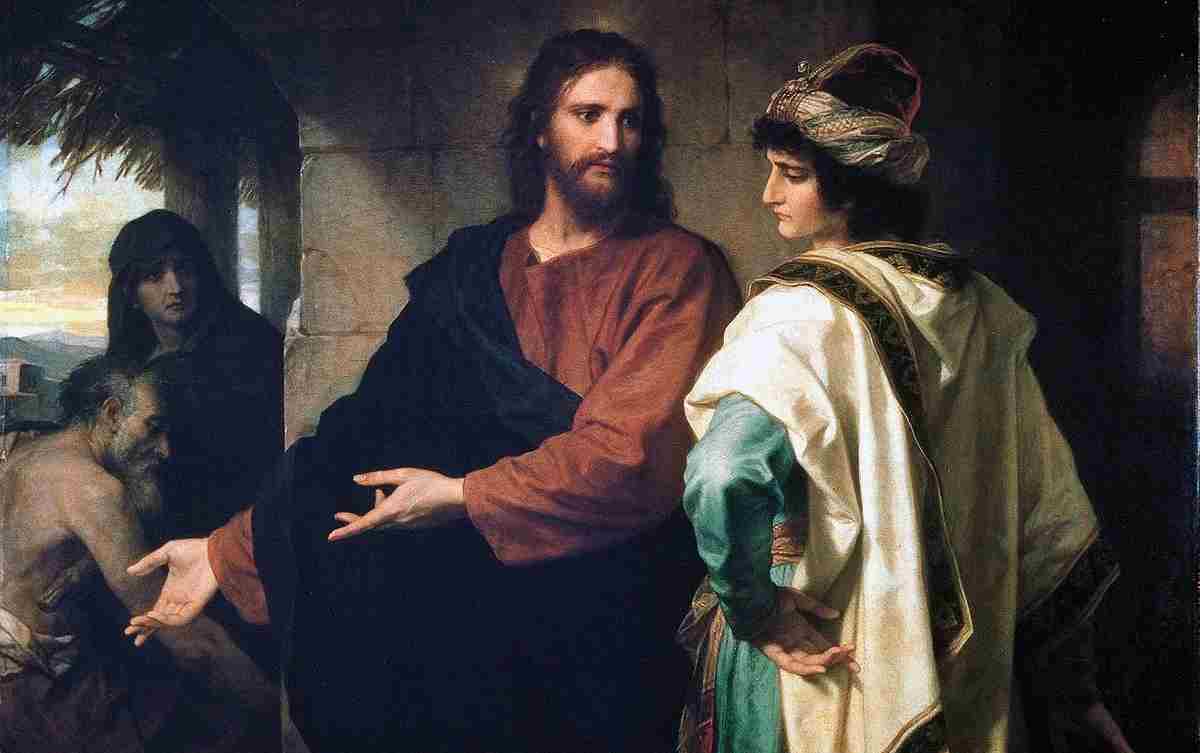Good or Holy?

If I were to ask one of your friends to describe your character, chances are they would describe you as a “good” person. In today’s world, it seems that anyone who is not a menace to society is worthy of being labeled a “good” person – your teachers are “good” people (or maybe not, depending on how much homework they give), your colleagues are “good” people, your neighbors are “good” people, and rightfully so. I believe that all people are worthy of being called “good” as a result of being God’s “good” creation (cf. Gen. 1:31). Though the real question is: would your friends describe you as “holy?” The world is full of “good” people, but the world is in desperate need of “holy” people. In this series, I will define and discuss the difference between “good” and “holy” people with hopes that the reader will resolve to grow in their holiness.
Let us first consider the definition of the word “good.” In the Gospels, a rich, young man approached our Lord and asked Him, “Good Teacher, what good thing shall I do that I may have eternal life?” (Matt. 19:16). Our Lord replied, “Why do you call Me good? No one is good but One, that is, God” (v. 17). When our Lord said “No one is good but One,” He did not mean that humans are not good. Our Lord replied in this manner to highlight that human goodness is negligible in comparison with God’s goodness. We learn from these verses that the essence of “goodness” is God, and, therefore, those who are “good” but have a weak relationship with God are deficient. As the dialogue between Christ and the rich young man progresses, the deficiency of his goodness becomes more apparent.
Our Lord then instructs the young, rich man to “keep the commandments,” to which he pridefully replies that he “has kept [all the commandments] from [his] youth” (v. 17, 20). Undoubtedly, the young man was a “good” person who feared God and obeyed the commandments. But, despite his goodness, he still felt empty and realized that he was missing something so he asked the Lord, “What do I still lack?” (v. 20). I admire this young man for asking this question because it indicates that he was able to honestly evaluate himself and found himself to be empty – a skill we should learn to exercise frequently. Externally, the young man seemed good, but internally, his passion and desire for God was weak. The Lord asked him, “[T]o be perfect, go, sell what you have and give to the poor, and you will have treasure in heaven; and come, follow Me.” The rich young man then “went away sorrowful” (v. 21-22).
To further expound on his question, I believe the young rich man was lacking holiness. Holiness is the result of the dwelling of the Holy Spirit in our hearts. Like the rich, young man, too many people lack interior holiness, yet exhibit outward forms of goodness. The result is a very diluted form of inconsistent goodness, because the source of their goodness is unstable. In the end of the story of the rich, young man, we see how ironically the “good” person suffers from avarice and chooses “evil” by selecting the earthly over the heavenly. In other words, his goodness was conditional and dependent upon temporal circumstances (i.e., his possessions), not upon the guidance of the unshakable Holy Spirit.
Perhaps a few other examples will help illustrate this point. Many people are good when things are going well for them or when it is in their interest to be good. For example, a career-focused business leader might have a “good” reputation at work with their colleagues, but at home, their spouse and children may have a completely different perception. Teenagers can be extremely graceful with their friends because they want to be liked and fit it, but then be very rude to their parents at home. Although both the business leader and teenager are “good” people, the inconsistent goodness demonstrated by their behavior is the direct result of the weakness of their spirituality. Being “good” starts from within by consciously striving to be led by the Holy Spirit because goodness is the fruit of the tree of holiness.
I ask the reader to evaluate their life and determine if you are “lacking” like the young rich man. Ask yourself if you are “good” or “holy.” At the end of our lives when we are standing before the throne of God, it would be a disaster to realize that our “good” was not really “good” enough. In the next article, we will continue developing this concept and will discuss further what it means to be holy.